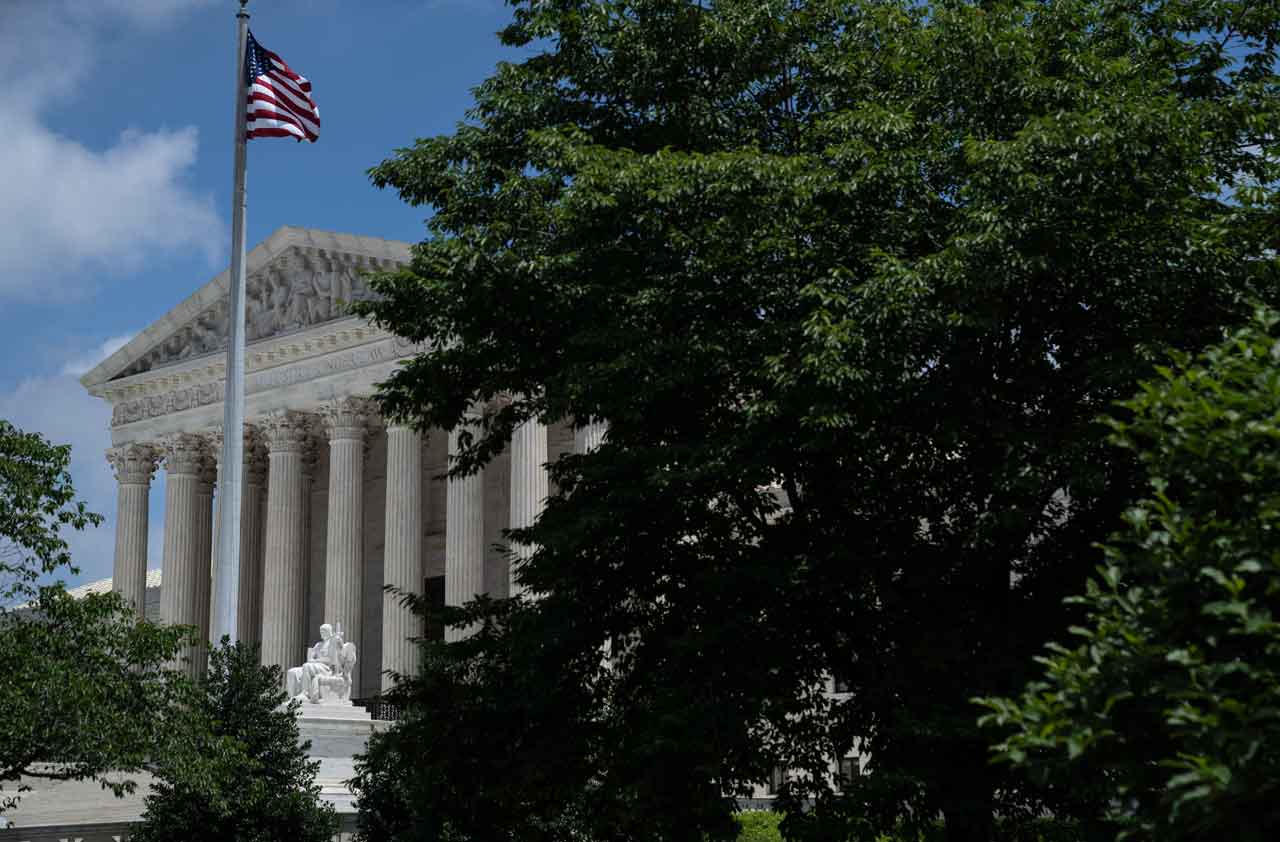Profit and prosper with the best of Kiplinger's advice on investing, taxes, retirement, personal finance and much more. Delivered daily. Enter your email in the box and click Sign Me Up.
You are now subscribed
Your newsletter sign-up was successful
Want to add more newsletters?

Delivered daily
Kiplinger Today
Profit and prosper with the best of Kiplinger's advice on investing, taxes, retirement, personal finance and much more delivered daily. Smart money moves start here.

Sent five days a week
Kiplinger A Step Ahead
Get practical help to make better financial decisions in your everyday life, from spending to savings on top deals.

Delivered daily
Kiplinger Closing Bell
Get today's biggest financial and investing headlines delivered to your inbox every day the U.S. stock market is open.

Sent twice a week
Kiplinger Adviser Intel
Financial pros across the country share best practices and fresh tactics to preserve and grow your wealth.

Delivered weekly
Kiplinger Tax Tips
Trim your federal and state tax bills with practical tax-planning and tax-cutting strategies.

Sent twice a week
Kiplinger Retirement Tips
Your twice-a-week guide to planning and enjoying a financially secure and richly rewarding retirement

Sent bimonthly.
Kiplinger Adviser Angle
Insights for advisers, wealth managers and other financial professionals.

Sent twice a week
Kiplinger Investing Weekly
Your twice-a-week roundup of promising stocks, funds, companies and industries you should consider, ones you should avoid, and why.

Sent weekly for six weeks
Kiplinger Invest for Retirement
Your step-by-step six-part series on how to invest for retirement, from devising a successful strategy to exactly which investments to choose.
Beijing ought to be discounting the tough-on-China rhetoric in the U.S. The odds are that none of the candidates would carry out such a policy if elected president. Listen to the current round of presidential hopefuls, and you'd think the U.S. were positioning itself to get tough with China over its much-criticized trade practices -- right after the November election.
SEE ALSO: Congress Picks Wrong Fight with China
Republican front-runner Mitt Romney has accused Beijing of cheating, and has vowed that if he becomes president, he'll immediately declare China a "currency manipulator" -- a move that would pave the way for U.S. imposition of offsetting duties, tariffs, sanctions and other restrictions on a bevy of Chinese goods. "I'll clamp down on [a] China that's been cheating," the former Massachusetts governor pledged in a stump speech earlier this month. "They've been stealing our intellectual property, our designs, our patents, our know-how, our brands; they've been hacking into our computers. That has got to stop."
From just $107.88 $24.99 for Kiplinger Personal Finance
Become a smarter, better informed investor. Subscribe from just $107.88 $24.99, plus get up to 4 Special Issues

Sign up for Kiplinger’s Free Newsletters
Profit and prosper with the best of expert advice on investing, taxes, retirement, personal finance and more - straight to your e-mail.
Profit and prosper with the best of expert advice - straight to your e-mail.
Other Republican candidates have embraced similarly tough-sounding rhetoric. Only former Utah Gov. Jon Huntsman, a Republican who served as President Obama's ambassador to China before launching his presidential bid, has eschewed the hard-line approach, calling it dangerous and counterproductive. And his campaign is going nowhere.
But those who expect the next U.S. president to crack down on Beijing on economic issues are probably in for a disappointment. Once a candidate becomes president, he quickly realizes how limited his options are -- and the consequences he risks if he carries out his campaign threats.
Both Democrat Bill Clinton and Republican George W. Bush engaged in similar posturing against China before they took office. And both stowed their boxing gloves within a few months of being sworn in. In fact, each ended up going out of his way to bring China further into the global economic and trading system.
Candidate Clinton lambasted China in 1992, accusing incumbent George H.W. Bush of coddling dictators in Beijing and refusing to grant China special trade preferences. But Clinton reversed course in 1994 at the urging of U.S. business, declaring China to be a "strategic partner" and backing its accession to the World Trade Organization (WTO).
Eight years later, Bush's son, George W., went through a similar turnabout, charging during the campaign that Clinton had "made a mistake" in designating China a strategic partner, and calling for a tougher policy that would put Beijing on notice about trade and geopolitical issues. "We need to be tough and firm," he said. The younger Bush changed his tune after the Sept. 11, 2001, terrorist attacks, when he concluded that he needed China's support for the newly declared war on terrorism. He later began high-level, broad-scale talks with Chinese officials and cleared a path for China to become part of the Group of 20, which sets global economic strategy.
The reasons for both turnabouts are simple: Though it's easy for politicians to harrumph about China's trade practices, it's hard to punish that country without risking punishing the U.S. more. China is huge, and if it retaliated, it would hurt a broad swath of consumer and business interests.
Moreover, America has far more at stake in dealing with China than just a narrow-interest trade spat. If the next president wants to speed up America's economic recovery by spurring more U.S. exports, China is likely to be the major engine of growth for the global economy. And U.S. military and geopolitical concerns in Asia aren't likely to be eased if Beijing feels under siege on trade issues.
Although China has shown that it's willing to abide by WTO decisions, it also has been quick to retaliate against the imposition of new U.S. trade restrictions -- often before the WTO actually rules. Such tit-for-tat skirmishes can quickly escalate into trade wars in which both sides have a lot to lose.
While Republican candidates have been calling for a tougher China policy, Obama has been hardening his own rhetoric. In recent months, he has sent several high-visibility trade cases to the WTO and has personally urged Beijing to change its China-first trade practices, though he has stopped just short of branding China a currency manipulator. Obama has also adopted a tougher posture on geopolitical and military issues: He has warned China against bullying its neighbors in the South China Sea; openly declared that the U.S. will maintain its presence in Asia indefinitely; and reoriented U.S. military strategy to back up that statement, including basing a small contingent of U.S. Marines in Australia.
Even so, much of what Obama has done so far amounts to little more than words, aimed at positioning him to the right of Romney on the China question. The president's new defense plan contains no new funding for additional warships to help bolster the U.S.' presence in Asia, and the Marine unit bound for Australia is symbolic, nothing more.
As for Romney, the day he delivered his get-tough-with-China remarks, David Greenspon, a businessman who hosted the candidate's campaign appearance at an Iowa factory, later assured fellow businessmen that Romney's strident rhetoric was just talk.
In fact, whichever candidate wins the November election will probably wind up warding off protectionism in Congress in 2013. If the U.S. jobless rate remains high and the political parties remain deadlocked, lawmakers may be champing at the bit to pass punitive legislation. Bashing China is always an easy shot. Congress already seems wrought up over China's refusal to let its currency appreciate more sharply against the U.S. dollar, which theoretically would make Chinese goods more expensive here and give American exports to China a boost.
Though it seems simple, the currency issue is a lot more complex. When U.S. companies export to China, they compete with Europe and Japan , so it's the euro and the yen that determine U.S. competitiveness in China, not the yuan. And forcing the yuan higher won't bring back "lost" jobs. For the most part, low-wage factories are leaving China for Vietnam, not for the U.S.
To be sure, there are many important trade issues on which a new administration could focus and potentially win positive results. But practice has shown that Beijing is far more willing to consider meeting U.S. trade complaints if they're lodged quietly, in private, rather than in a public campaign that makes China look as though it's knuckling under. As Greenspon puts it: “You don't push China. If you push China, you've got a problem." That's what Clinton and Bush found out.
Profit and prosper with the best of Kiplinger's advice on investing, taxes, retirement, personal finance and much more. Delivered daily. Enter your email in the box and click Sign Me Up.

-
 Dow Adds 1,206 Points to Top 50,000: Stock Market Today
Dow Adds 1,206 Points to Top 50,000: Stock Market TodayThe S&P 500 and Nasdaq also had strong finishes to a volatile week, with beaten-down tech stocks outperforming.
-
 Ask the Tax Editor: Federal Income Tax Deductions
Ask the Tax Editor: Federal Income Tax DeductionsAsk the Editor In this week's Ask the Editor Q&A, Joy Taylor answers questions on federal income tax deductions
-
 States With No-Fault Car Insurance Laws (and How No-Fault Car Insurance Works)
States With No-Fault Car Insurance Laws (and How No-Fault Car Insurance Works)A breakdown of the confusing rules around no-fault car insurance in every state where it exists.
-
 U.S. Manufacturing Is Already Ailing from Coronavirus
U.S. Manufacturing Is Already Ailing from CoronavirusEconomic Forecasts Supplies are hard to come by, and in the longer-term demand may be at risk.
-
 Will You Have to Pay More Sales Taxes on Your Online Purchases?
Will You Have to Pay More Sales Taxes on Your Online Purchases?business One thing’s for sure: Consumers who live in one of the five states without a sales tax won’t be affected by the Supreme Court’s ruling.
-
 What to Expect From the New Fed Chief
What to Expect From the New Fed ChiefEconomic Forecasts By and large, Jerome Powell will move along the path set by his predecessor.
-
 How a Border Tax Would Affect You
How a Border Tax Would Affect YouBusiness Costs & Regulation A plan to limit imports could raise prices but also create more jobs.
-
 A Housing Shortage Looms: Builders Can’t Keep Up
A Housing Shortage Looms: Builders Can’t Keep Upbusiness Starter homes especially are becoming scarce.
-
 Help Wanted in America: Skilled Workers
Help Wanted in America: Skilled WorkersTechnology In an ever-more-competitive job market, technology increases the need for skilled workers.
-
 The Unintended Consequences of a Boost in Overtime Pay
The Unintended Consequences of a Boost in Overtime PayBusiness Costs & Regulation New rules mean millions more employees will be overtime-eligible. But will employers find workarounds?
-
 U.S. Economy to Perk Up in Second Half
U.S. Economy to Perk Up in Second HalfEconomic Forecasts Consumers are recovering from a swoon induced by a wobbly stock market. But energy, other sectors will continue to struggle.
